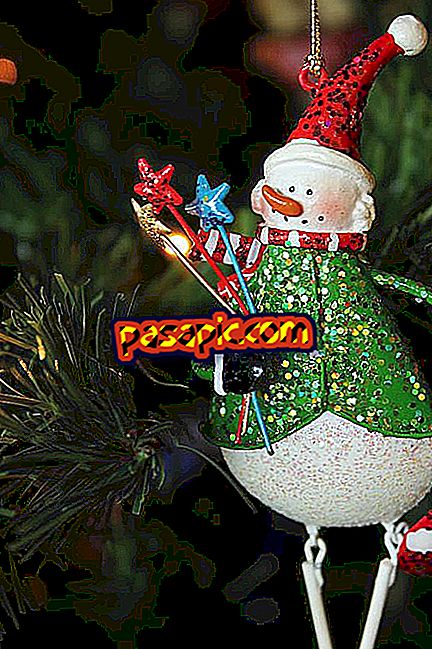How to know if my dog has mastitis - knows the symptoms

Canine mastitis is a very common condition in bitches that are nursing their puppies, are newly born or have several days or weeks of small, but can also occur in bitches with psychological pregnancies. This condition is an inflammation and infection of the breasts that can cause great pain and discomfort in the bitch. In addition, it causes a loss of quality in the breast milk causing it, being infected, not properly nourish the puppies and may even lead to death.
Identifying the symptoms and caring for your pet to prevent or treat this condition is essential to ensure their welfare and that of the litter, if any. In this article we give you an answer to your question about how to know if my dog has mastitis and we go deeper into this topic.
What is canine mastitis and how is it produced
Mastitis in dogs is the inflammation that occurs in the breasts of this, usually accompanied by an infection, although it can occur without infection, and that can be produced by several aspects.
Among the most common causes of mastitis in bitches we can find that during the canine lactation the puppies are stacked on the tits of their mother to get the milk they need so much and press this area with their legs and nails, which can sometimes produce injuries in the breasts of the bitch, that having an immune system weakened by the recent birth can be a victim of infections in this area.
These infections will produce a series of symptoms in the breasts of the bitch but, additionally, the bacteria can also infect the milk and transmit to the puppies through it, causing them in more severe cases death. It is very important to closely monitor the health of our dog in order to make it healthy during breastfeeding, and prevent the puppies from getting sick at the same time.
This infection can be caused by other problems, not only because the little ones scratch the breasts and can also occur in bitches with psychological pregnancy . If you see that your dog has milk and is not pregnant, because you think it is not possible in your case, and you see that your breasts are swollen or very hard, you are likely to have a psychological pregnancy and have developed mastitis.

Symptoms of canine mastitis
It is normal that while the dog is breastfeeding is tired and even a little thin, however in a natural condition a bitch breastfeeding usually eat and replenish energy. When we observe it very decayed it is time to pay attention to identify the symptoms of mastitis in bitches, among which are:
Symptoms of mastitis in the bitch
- Apathy
- Fatigue and malaise
- Loss of appetite
- Inflammation and extreme hardness of the tits
- Irritation and redness in the breasts
- Great sensitivity to touch and pain in the breasts
- Bloody and pus discharge
- Lumps or bumps
- The dog avoids nursing the puppies for the pain
- Fever
- Rapid heart rate
- Irritability
- Vomiting
- Diarrhea
Symptoms in puppies
- Weight loss or lack of habitual and constant weight gain in small children
- Do not breastfeed enough
- Weakness
- Moans and discomfort
- Digestive problems, such as diarrhea and vomiting
- Skin problems and hair loss
Given these signs, it is essential to consult the veterinarian as soon as possible. In addition, if you let time pass, by retaining the milk the dog runs the risk of suffering a major infection.

What to do if my dog has mastitis
If you detect one or several of the symptoms mentioned above and suspect that your dog has mastitis, it is very important that you take your dog immediately to the veterinarian . A specialist can diagnose if it is mastitis and offer the best antibiotic treatment for the quick recovery of your dog. It is also very likely that in these cases it is necessary to give milk to the puppies through a bottle until the moment they can take it alone and then go to ingest solids, the specialist will tell you the best way to do it. In addition, we recommend that you read this other article from which we tell you How to feed a puppy dog.
How mastitis is diagnosed in bitches
Once you detect some of the symptoms mentioned and take your dog to the veterinarian, the specialist will have to check your faithful friend to be able to give an accurate diagnosis, commenting if it is really about this problem or another. For the veterinarian to diagnose mastitis in a bitch, she can perform several tests and look at the main symptoms during the physical examination or revision:
- Check if the dog is lactating or with a psychological pregnancy.
- Detect and analyze secretions of the breasts.
- Microbiological culture of breast milk.
- Blood test.
- Physical examination in which it is verified that the mammary glands are hardened and they hurt.
- Wounds in the breasts.
- Ultrasound of the mammary glands.
- Fever.
- Anorexia or loss of appetite.
- Vomiting
- Puppies do not gain weight or even lose weight.

Can puppies continue to breastfeed if the dog has mastitis?
Although the dog needs breast milk to be removed, it is NOT recommended that the puppies continue to breastfeed if the mother has mastitis . The reason is that, on the one hand, the mother may not let them get close because of the pain she feels and if they insist, she may end up reacting badly. On the other hand, if the milk becomes full of toxins and bacteria, the puppies will surely get sick. Therefore, it is best that the puppies go to take a bottle. However, it is necessary to help the dog to drain the accumulated milk, something that the veterinarian will do or explain how to do it well so as not to harm our hairy.
In case there is only inflammation and there is no infection, there are veterinarians who do recommend that the puppies continue to lactate.
Treatment of mastitis in bitches
The veterinarian is the only one who can prescribe a treatment and decide which will be the best for each case. When inflammation of this type is detected, and especially if there is infection, the treatment must be aggressive to prevent it from getting worse, since complications of this condition are very common when it is not treated or treated properly.
Normally, the treatment for canine mastitis involves extracting the breast milk that is retained, antibiotics, anti-inflammatory drugs and even surgery is contemplated in cases in which there are abscesses, tumors or other complications.
Antibiotic treatment is usually broad spectrum and usually lasts about 2 or 3 weeks. If the problem is chronic or prolonged, it is advisable to give the antibiotic that is most appropriate according to the results of the culture, that is, against the specific microorganisms that are causing the problem. Amoxicillin, amoxicillin, and clavulanic acid, cephalexin, or cefoxitin may be prescribed.
It is necessary to follow all the instructions of the veterinarian and to comply even with the time that this indicates, since an incomplete treatment will facilitate a relapse.

How to prevent mastitis in my bitch
Preventing mastitis in bitches is not always simple, however the clearer the area where the mother suckles the puppies the less risk there is of this condition, so it is recommended:
- Note that the puppies ingest milk from all the breasts of the bitch, this is important to ensure that the milk flows properly.
- Keep the area where the dog is with the puppies as clean as possible, any scraps of the dogs or the mother should be picked up and removed. It is also important to check the legs of the puppies to make sure they do not have feces, if so you should clean them well.
- If the dog allows you to approach without difficulty then it is convenient to clean the breasts with a sterile gauze soaked in water several times a day. By doing so you can check the status of the same and detect the presence of injuries or injuries.


